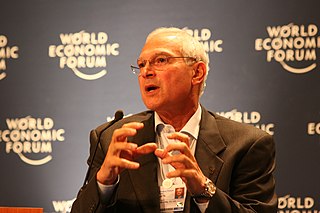A Quote by Jay Samit
Most startup entrepreneurs unnecessarily spend half their time and give up half their equity in search of funding from angel investors and venture capitalists. Tens of millions of dollars are available to them for free from partners who not only don't want their equity, they don't even want to be paid back.
Related Quotes
State funds, private equity, venture capital, and institutional lending all have their role in the lifecycle of a high tech startup, but angel capital is crucial for first-time entrepreneurs. Angel investors provide more than just cash; they bring years of expertise as both founders of businesses and as seasoned investors.
We [US government] have used our taxpayer dollars not only to subsidize these banks but also to subsidize the creditors of those banks and the equity holders in those banks. We could have talked about forcing those investors to take some serious hits on their risky dealings. The idea that taxpayer dollars go in first rather than last - after the equity has been used up - is shocking.
When Barbara Walters called , she said, "Donald, I want to put you on as one of the top 10 most fascinating people." I could say no. And then, I could advertise a project that I`m doing, like doral or something. And spend half a million dollars on it or a million dollars, or I can do the show and spend nothing, and be on for a lot longer."
If you want to talk further about a relationship with Russia, look no further than the Clintons. As we've said time and time again, Bill Clinton was paid half a million dollars to give a speech to a Russian bank, and was personally thanked by Putin for it. Hillary Clinton allowed one-fifth of America's uranium to - reserve to be sold to a Russian firm whose investors were Clinton Foundation donors. And the Clinton campaign chairman's brother lobbied against sanctions on Russia's largest bank and failed to report it. If you want to talk about having relations, look no further than there.
Most people tell you they want to get out of kindergarten, but don't believe them. Don't believe them! All they want you to do is to mend their broken toys. "Give me back my wife. Give me back my job. Give me back my money. Give me back my reputation, my success." This is what they want; they want their toys replaced. That's all. Even the best psychologist will tell you that, that people don't really want to be cured. What they want is relief; a cure is painful.






























